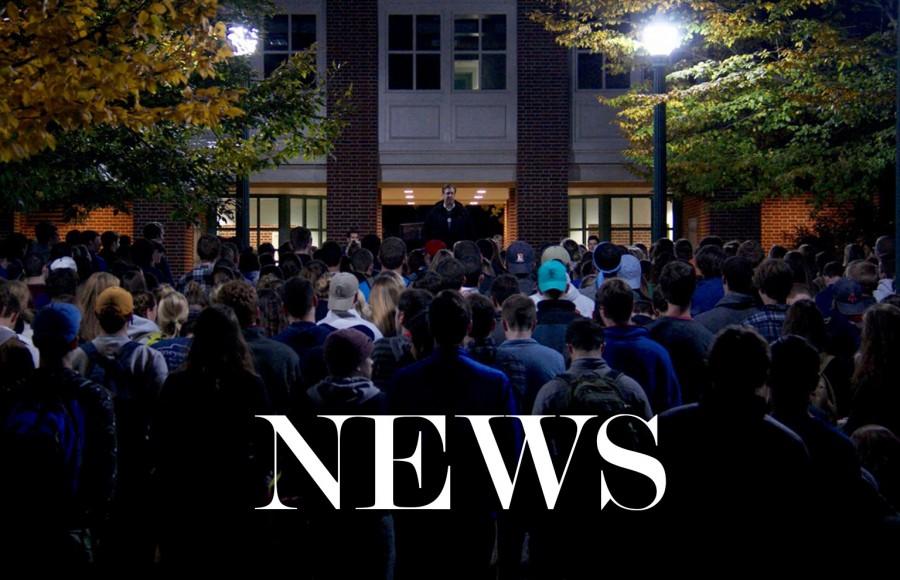Take Back the Night rallies against sexual violence on campus
November 5, 2015
Take Back the Night provides a forum for survivors to speak out about their experiences, in order to educate the community about the prevalence and impact of sexual assault and dating violence.
On Oct. 29, hundreds of students, faculty, and staff gathered on the Smith Quad for the annual rally and march to honor the strength of survivors of sexual assault and dating violence and join together as a community to help put an end to these crimes.
Speak UP Bucknell worked in conjunction with the Women’s Resource Center to plan this year’s event. The rally gave a voice to a series of speakers, some of whom projected their experiences with sexual assault and dating violence and others who shared their commitment to making a difference on campus through personal narratives and poetry.
“As a speaker, it was actually comforting to get on stage and speak in front of that many people because it was so clear that everyone really cared and just wanted to support and listen to whoever was on stage,” Phebe Alley ’16, a Speak UP coordinator, said.
Karen Altendorf, visiting assistant professor of anthropology and sociology, shared her experience with a student whom she suspected as a victim of abuse.
“Never be afraid to say, ‘I am not okay, I need help,’” Altendorf said.
“I grew up in a home where violence was present. I teach courses dealing with crime and violence and law. I know the signs … I knew she was not okay and yet I was confused, I was conflicted, and I did not know what to do,” Altendorf said.
Speaker Amarachi Ekekwe ’18 addressed consent specifically.
“Consent is only seen as weird or abnormal because it’s treated as this big monster hiding under your bed, so stop being scared of the monster and turn on the lights,” Ekekwe said.
Anthony Marcozzi ’16 addressed the issue of male privilege.
“Countless women on this campus work to engage the community in conversations about sexual assault, and though their efforts have lead to incredible progress, their voices are routinely ignored by the people who need to hear their message the most. I feel I have a special responsibility to speak up and work to make change. I want to use my male privilege to be a part of the solution—not a part of the problem,” Marcozzi said.
Perhaps the most captivating moment of the night was hearing from Alexa Gorski ’16, a survivor of dating violence.
“I remember standing in the crowd last year at Take Back the Night, with a close friend and surrounded by peers, yet I still felt more alone than ever. However, by the end of the night, I realized I wasn’t alone. After listening to one of the speaker’s stories, I was so inspired by her strength and courage that I decided to file a complaint with the University. For me, Take Back the Night was, without a doubt, the most empowering experience I have been part of at Bucknell,” Gorski said.
“Speak up, and you can save someone’s life. And I know this, because so many of you have done it for me,” Gorski said.
After the event, Gorski said she received “such an outpouring of support.”
“This is the kind of support I was hoping we could all show each other on campus. I hope this kind of support continues as we all move forward and take an active role as positive bystanders. I can only hope Take Back the Night impacted someone this year in the same ways it has impacted me and changed my life,” Gorski said.
“You do not need a formal title or position to take a leadership role in making our campus a better place. To me, being a leader is having the guts to make the right and usually tough decision, even when it’s not the most popular decision. Being a positive bystander and role model for the community is an everyday commitment,” Marcozzi said.
On Speak UP’s evolution, Alley said, “It has been a joy to watch this event grow over the past three years that I have helped organize it and I only have the highest hopes for the future,” Alley said.






















